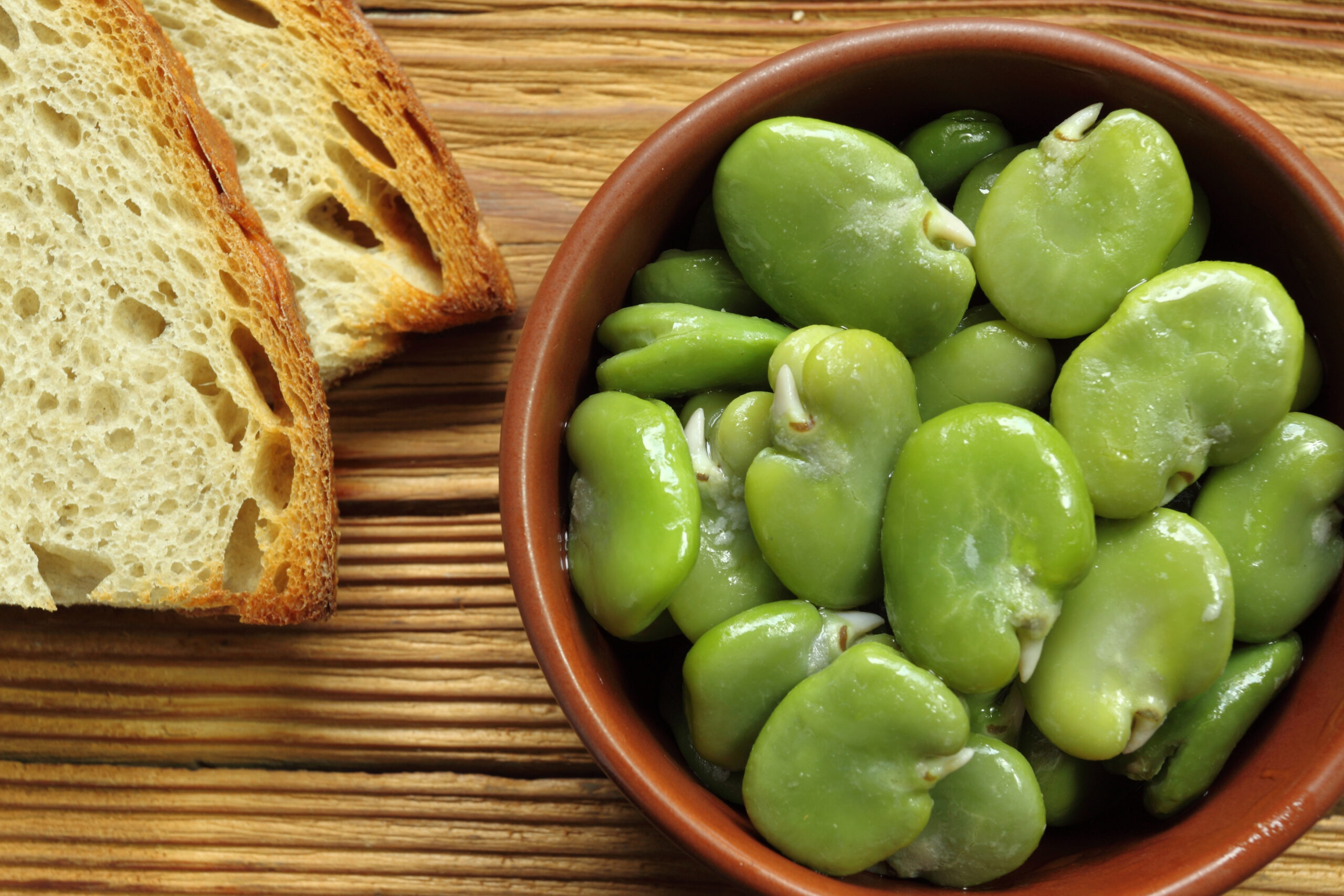For World Pulses Day, Professor Julie Lovegrove outlines how the ‘Raising the Pulse’ research programme is aiming to bring about one of the biggest changes to UK food in generations.

World Pulses Day is a designated United Nations global event that recognises the importance of pulses (chickpeas, dry beans, lentils, dry peas and lupins among others) as a global nutritious food and the role they can play in achieving a number of the UN’s Sustainable Development Goals.
Pulses also have an important part to play in improving UK diets. Our ‘Raising the Pulse’ research programme is based on the concept that considerable health and environmental benefits would result if we could make it easier for the UK population to eat more home grown pulses. The pulse best suited to us in the UK is the faba bean (commonly known as broad bean), which is naturally high in protein, micronutrients and fibre. Faba beans also have a low environmental impact, as they can ‘fix’ nitrogen from the atmosphere, which reduces the requirement for use of nitrate fertilisers. Despite this, faba beans are generally overlooked as a sustainable and affordable food, with the majority of the UK grown crop being used as animal feed.
We know that certain groups of the population find it more challenging to change their diet and most of the population would not significantly increase their consumption of pulses unless they were incorporated into familiar looking and tasting, economic and convenient staple foods. The obvious choice is bread, which is eaten by 96 per cent of people in the UK, with 90 per cent of it being white bread.
Through our research, we found that faba bean flour can directly replace the small amounts of soya flour used in in white bread as an improver, and also more substantial amounts of the nutrient-poor wheat flour. This means that we can produce new faba bean-rich bread with improved nutritional quality using faba beans grown here in the UK.
To date, there have been a lack of economic incentives for producers to supply raw materials with defined end use quality, or for processors to reconfigure their processing plants to accommodate this new raw material. We want to change this and encourage food manufacturers to use UK pulses to satisfy consumer demand for plant-based and pulse-rich foods, rather than importing pulses – chiefly soy.
We have brought together five research teams within the University of Reading and a collaborator at King’s College London to develop possible routes to market for UK-produced foods with added faba beans. The project includes experts in diverse areas, including environment, agriculture, food, processing and nutrition, health and consumer behaviour, who will work with industry, government and civil society to tackle five linked challenges:
1. How can we minimise the environmental impacts of growing faba beans? Professor Donal O’Sullivan will lead the team to conduct extensive field trials to establish growing protocols that will maximise the amount of nutrients produced per unit area using the best available genetics, agronomy and post-harvest technologies. We also aim to improve yield via nitrogen fixing bacteria, mitigate environmental impacts of farming faba beans and plan for the changing climate.
2. How can faba beans be best processed for incorporation into a variety of foods, such that they retain the highest possible nutritional value and impart minimal change in the taste of bread? Following our successful pilot breadmaking trials lead by Dr Paola Tosi and her team, we will conduct optimised cultivar selection, pre-processing and milling steps to make faba bean flours that can be successfully combined with wheat flour to make palatable bread with added nutritional and environmental benefits.
3. What effects do eating more pulses have on nutritional intake and human health? We plan to perform a human study using faba bean bread to determine its effects on the availability of micronutrients including iron, hunger and health markers. We plan to consult and work with members of disadvantaged communities as well as the University of Reading’s student halls of residence and catering outlets working with the ‘Menus of Change’ initiative. Participants will be asked questions about how full they felt, for how long and their liking of the foods. We anticipate that faba bean bread will improve satiety, as well as providing enhanced nutritional benefits in products that are enjoyable to eat.
4. How can understanding of consumer attitudes, preferences and behaviours be used to achieve significant increase in pulse intake? To address this crucial point, Dr Elena Millan’s team will be reviewing existing evidence and conducting focus groups, workshops, surveys, a choice experiment and a test market launch. The team will determine how faba bean bread and related foods are perceived, whether they are liked and, therefore, chosen, consumers’ willingness to pay, as well as whether knowledge of product benefits will promote adoption and consumption.
5. Finally, Dr Jake Bishop’s team will combine all the data collected across this project to create a model of interactions between faba bean production, manufacturing and consumption. This model will be used to determine the impact of increasing sustainable pulse consumption on the environment, nutrient intake and health of the nation.
Making small changes to the humble loaf so that it is healthier and less damaging to the environment – and encouraging British consumers and food producers to switch to bread containing faba beans – could bring about one of the biggest changes to UK food in years.
Raising the Pulse is a £2 million, three-year multidisciplinary programme of research, funded by the UKRI Biotechnology and Biological Sciences Research Council, as part of their ‘Transforming UK Food Systems’ initiative project.
Professor Julie Lovegrove leads ‘Raising the Pulse’ and is Chair of the Hugh Sinclair Unit for Human Nutrition, Department of Food and Nutritional Sciences, at the University of Reading.
